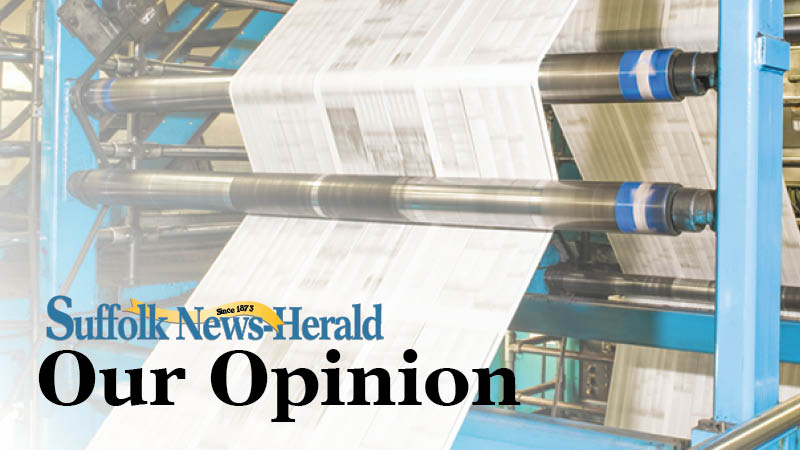Whatever the cost
Published 9:24 pm Wednesday, April 24, 2013
It should come as no real surprise that researchers have concluded Virginia’s new transportation funding mechanisms will be expensive, especially among the poor. The multi-billion-dollar package of new revenues represents one of the largest effective tax increases in Virginia history.
Someone was going to have to pay for the road improvements, and Virginia’s political class has worked hard for decades to make certain the burden would not be equitable geographically so it’s hardly shocking that their solution to highway funding also proves to be unfair to people of a lower economic strata.
Legislators from the rural portions of the commonwealth have stubbornly refused for many years to support transportation spending plans that would spread to all of Virginia the burden of improving roads in Hampton Roads and Northern Virginia, while at the same time forcing residents of the urban communities to support and fund rural projects of sometimes-questionable importance.
The rural legislators’ obstinate refusal to adopt a new statewide transportation funding mechanism utterly ignored the fact that Hampton Roads and Northern Virginia provide much of the commonwealth’s economic lifeblood. Without a viable ports system and a vibrant military community in Hampton Roads, for instance, there would be far less traffic on our local roads, but there also would be far less revenue for the state to use on any number of projects — including rural highway projects of questionable significance.
The “historic” legislation creating a new package of transportation funding mechanisms did not address the geographic inequity in raising money for roads. In fact, by setting up special 0.7-cent sales taxes for Hampton Roads and Northern Virginia, the new law codifies the not-our-problem mentality of rural legislators toward the intractable traffic around the homes of their urbanite Virginia cousins.
Furthermore, the commonwealth’s reliance on sales taxes to help provide the billions of dollars in new funding needed for long-dormant highway projects also guarantees the economic inequity that was revealed this week.
Sales taxes are always regressive, and when one considers that folks in Hampton Roads will face higher sales taxes than their rural neighbors — along with steep and increasing tolls for use of the area’s river crossings — the average working stiff trying to get from his home on one side of the tunnel to his job on the other will wind up spending a significant and growing portion of his paycheck just to earn a living.
At the same time, most of the new fees and taxes he pays to fill the coffers of the Virginia Department of Transportation will be divvied up through a funding formula that gives insufficient weight to the needs of his own community in an effort to spread a little bit of cash all over the commonwealth.
And none of these new taxes or fees will hit the wealthy as hard as they do the poor. But that should have come as no surprise to the governor who wanted to establish a legacy this year or to the legislature that was determined to give it to him, whatever the cost.



